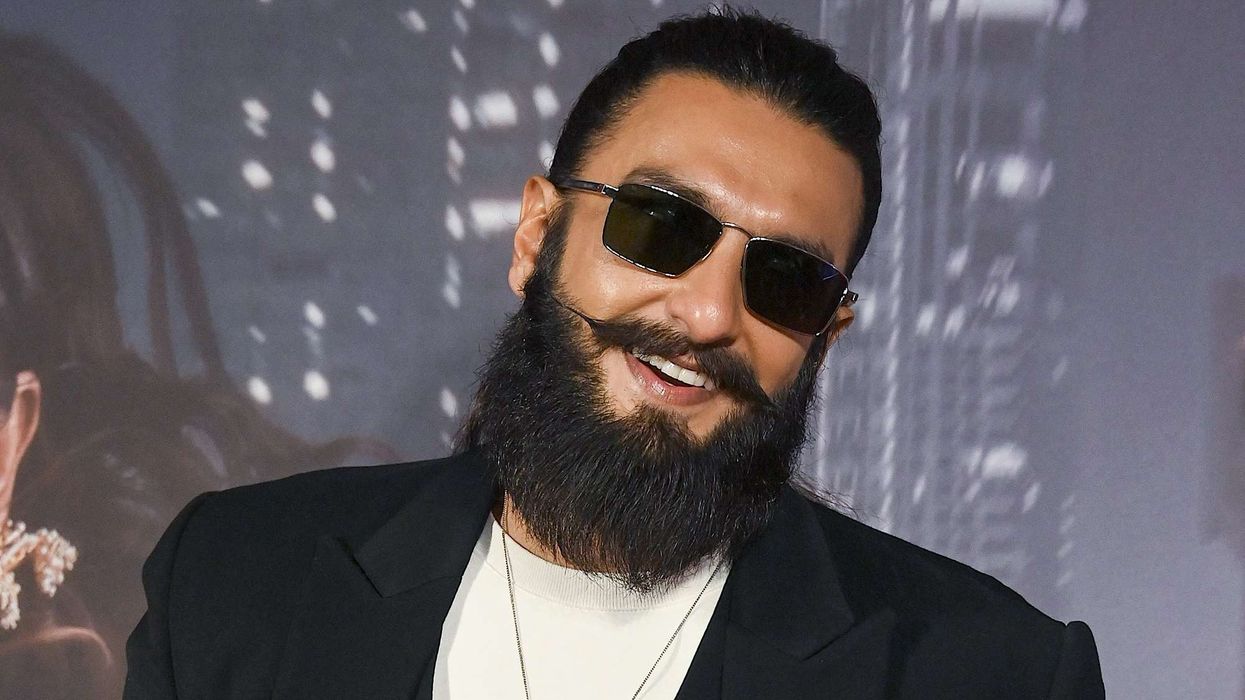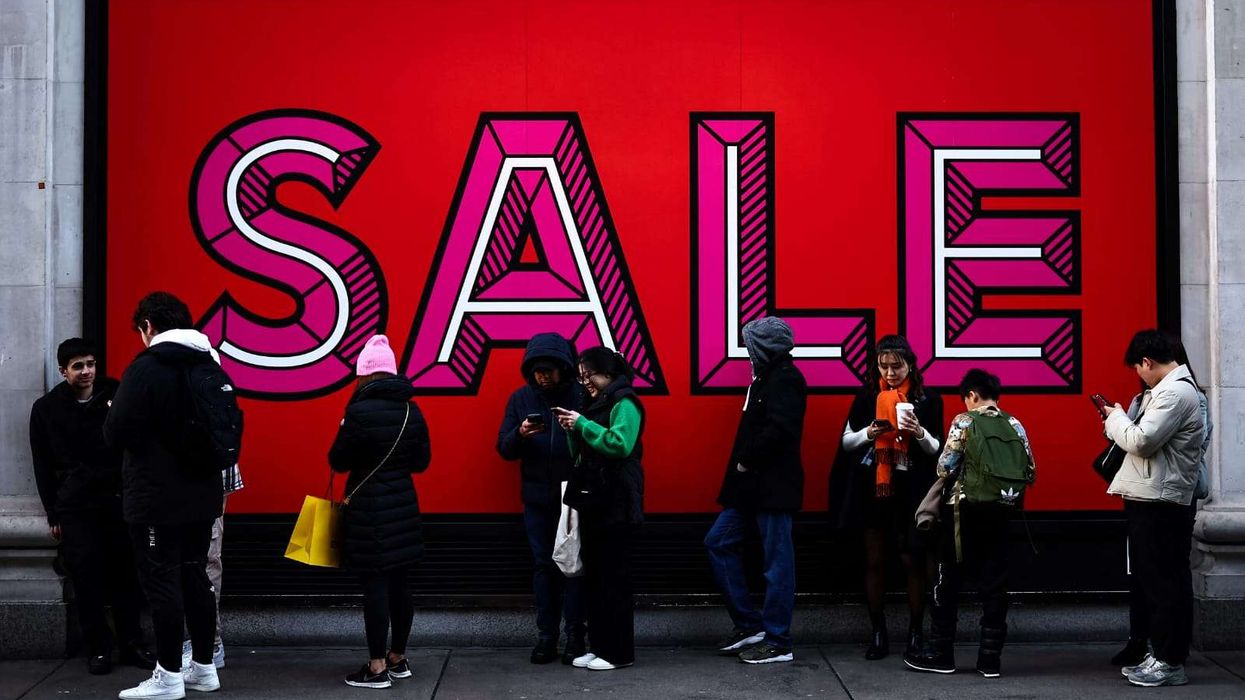ONCE described as “an anarchist in a barrister’s wig” by Loaded magazine and “the most dangerous woman in Britain” by the Sun, Shami Chakrabarti has never been afraid of speaking her mind.
Some may have assumed that, having left her position as director of civil rights advocacy group Liberty in 2016, opportunities to do so might have died down. However, Baroness Chakrabarti’s public persona as a measured, articulate and outspoken human rights activist, means she will never be short of requests from the media to discuss such matters.
Her political opponents have a vested interest in portraying her as a firebrand and as an ally of Labour leader Jeremy Corbyn, she is an easy target for the livelier and more partisan parts of the national media.
The difference is now as a member of the House of Lords and the Labour party’s shadow attorney general, is that Baroness Chakrabarti is more of a political creature and less bound (but not completely) by legal niceties.
In May, speaking on BBC Radio 4’s Today programme, she was asked to comment on the expulsion from the Labour party of Alistair Campbell (Tony Blair’s former communications chief) for admitting that he voted Liberal Democrat in the European Parliament elections. Reassuring other Labour members who, frustrated by the party’s equivocation over Brexit, may have voted the same way, she urged them to “come forward and talk about their future intentions”.
“Political parties have rules about people who support other parties, but I hope this case will be reviewed,” she later added. Earlier in the year, amid continuing disquiet over claims of anti-Semitism within the Labour party, Baroness Chakrabarti, who chaired an inquiry into the matter in 2016, reached out to the Jewish Labour Movement.
“My plea to the Jewish Labour Movement is to stay in the Labour movement and tackle racism together, not to personalise it and make it about Jeremy Corbyn, because he is just one person and he won’t be the leader forever.”
Earlier in the year, she said Corbyn was “a lifelong human rights defender” who didn’t always get a fair hearing in the media, after he was criticised for statements which appeared to support president Nicolás Maduro’s controversial socialist government in Venezuela.
A regular on BBC’s Question Time and BBC Radio 4, she was once described by The Times as “probably the most effective public affairs lobbyist of the past 20 years”. In March, she showed little hesitation in criticising the BBC’s editorial policies. Speaking on The Andrew Marr Show, she addressed Newsnight’s decision to feature an interview with a far-right extremist in the aftermath of the Christchurch mosque shootings.
“I know there’s been a lot of controversy about a Newsnight piece that went out on the day of the massacre, where an extreme far-right voice was left essentially unchallenged,” she said.
“We all need to reflect on editorial decisions we make and also on the tone of our discourse about things like ‘culture wars’ and ‘invaders’ and immigration, this othering of minorities.” The timing of her ennoblement as a Labour life peer, under the title Baroness Chakrabarti, of Kennington in the London borough of Lambeth, brought controversy and accusations of hypocrisy to her doorstep.
Her peerage and appointment to the shadow cabinet one month later, in October 2016, followed the publication of her inquiry into widespread anti-Semitism in the Labour party. Her findings established that the party was “not overrun by anti-Semitism, Islamophobia, or other forms of racism”, although an “occasionally toxic atmosphere” was discernible, as well as “too much clear evidence of ignorant attitudes”.
Her appointment to the Lords, so soon after chairing the inquiry, courted criticism from Labour MPs and accusations of a “whitewash for peerages scandal” from the vice-president of the Board of Deputies of British Jews.
Other voices from the liberal left castigated her for selling out to an elitist institution. For her part, Baroness Chakrabarti claimed that Corbyn’s offer was only made after the report’s publication.
“Jeremy Corbyn is not a corrupt man and I am not a corrupt woman. I stand by the report, there was nothing remotely transactional about this,” she insisted. Her previous image as a straight-talking maverick working outside of the establishment may have been tarnished, but there are undoubtedly elements of logical continuation to her chosen career path.
If her aim was always to hold power to account and fight injustice, she certainly currently occupies one of the most elevated legal offices in the land to do just that. In July last year, she pulled no punches in likening the decision of then home secretary Sajid Javid not to oppose the execution in the US of two British Daesh (Islamic State) fighters, as tantamount to underhandedly reversing the UK’s position on the death penalty.
However, it remains to be seen what will happen to El Shafee Elsheikh and Alexanda Kotey. Elsheikh’s mother, Maha Elgizouli, has been fighting to get her son tried in the UK and there is some disquiet in Washington that the two, already stripped of their UK citizenship, are not facing trial in the land of their upbringing and statehood, prior to their engagement with Daesh.
Author of the books On Liberty and On Women, Baroness Chakrabarti’s career as director of Liberty spanned the onset of the Iraq war to the 2016 EU referendum. This period saw the expansion of multicultural Britain, alongside draconian anti-terror legislation in a post-9/11 world.
The latter was a focus area for Baroness Chakrabarti and Liberty. She was also a member of the Leveson inquiry panel into press standards between 2011 and 2012. Appointed a CBE in 2007 for her services to the human rights cause, Baroness Chakrabarti was a flag carrier at the opening ceremony of the 2012 London Olympic Games.
A law graduate from the London School of Economics, Baroness Chakrabarti began working as a legal counsel at the Home Office in 1996 after becoming a barrister. Growing up in Harrow in London, she credited her sense of justice and flair for critical thinking to her Bengali parents encouraging robust political debate at home among friends and family alike.






